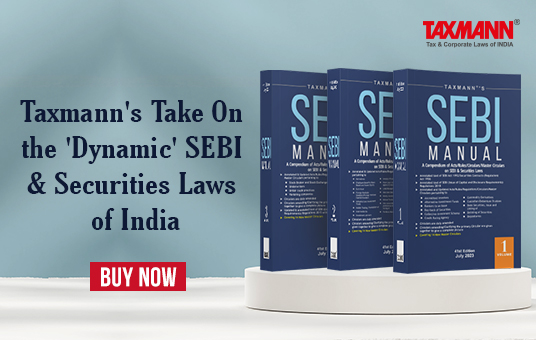| AA rightly reduced the fine as appellant admitted default and approached AA for compounding of offence u/s 96: NCLAT |
|
|
| In the instant case, the appellant (i.e. director) along with the company and five others were held guilty for non-compliance with section 96 of the Companies Act, 2013 in the holding of the Annual General Meeting (AGM). |
|
| Subsequently, a joint application was filed before the Adjudicating Authority (NCLT) under section 441 for the compounding of the offence. The NCLT called for a report from the ROC in respect of default by all the applicants. |
|
| The NCLT passed an order, wherein after compounding the offences, a fine amounting to the extent of 1/5th of the maximum fine was imposed. The appellant filed an instant appeal before the National Company Law Appellate Tribunal (NCLAT) against the order passed by the NCLT. |
|
| It was submitted that the NCLT had committed an error in imposing an excessive fine which required to be interfered with. Further, it was noted that as per the report of ROC, the maximum fine to be imposed on the appellant was to the extent of Rs. 1.32 crores. However, the NCLT reduced it to 1/5th of the maximum. |
|
| Further, NCLT had taken the same stand of reducing the fine in respect of the other applicants. |
|
| The NCLAT held that since the appellant had admitted his default and approached the NCLT for compounding of offence and the NCLT had reduced the fine, the instant tribunal did not find any error warranting interference. Accordingly, the appeal was to be dismissed. |
|
| SAT reduces penalty from Rs 25 lakh to 10 lakh where LODR violations were not of much serious nature |
|
|
| In the instant case, an investigation into the affairs of the appellant (i.e. the company) had revealed that the appellant was not following the due process of approving related party transactions. |
|
| It was also alleged that there was non-disclosure of a forensic audit being initiated against the appellant, which constituted a material event under regulation 30 of LODR regulations requiring disclosure. However, the company and company secretary failed to do so. |
|
| SEBI, after considering the replies and material evidence on record, found the appellant guilty of the said charges and consequently, imposed a penalty of Rs. 25 lakh under section 23E of the Securities Contracts (Regulation) Act, 1956 on the appellant. |
|
| It was noted that the appellant had committed violations of various provisions of LODR regulations. The said violations were, however, not that serious warranting the imposition of high penalties. Further, the appellant had been penalized under section 23E of the Securities Contracts (Regulation) Act, 1956. |
|
| It was noted that in the case of Suzlon Energy Ltd. v. SEBI [2021] 127 taxmann.com 333, it was held that section 23E is not a charging provision for the imposition of penalty for violation of the Listing Agreement. Instead, the correct provision is section 23A(a) of the SCRA and the penalty u/s 23A of SCRA ranges from a minimum of Rs. 1 lakh to a maximum of Rs. 1 crore. |
|
| The SAT held that, considering the aforesaid and violations committed by the appellant, the imposition of a penalty amounting to Rs. 25 lakh was excessive and arbitrary given in the facts and circumstances of the given case. Thus, the penalty of Rs. 25 lakhs was to be reduced to Rs. 10 lakh. |
|







